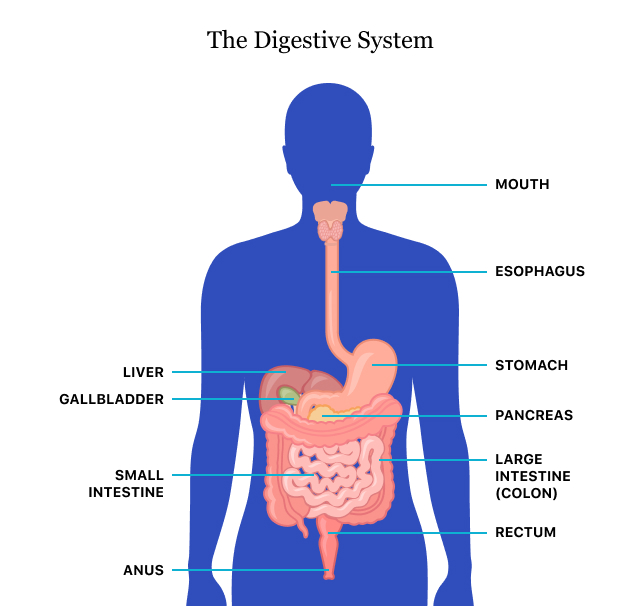
One important organ in the digestive system is the colon, also called the large intestine. Colon health is a significant part of digestive health. Natural colon cleanses can be done at home using water and diet. Digestive health is integral to feeling happy, healthy, and well.
Some people claim the colon should be cleansed for optimal digestive wellness. However, research proving the effectiveness of cleanses is scant and low in quality
Certain aspects of colon cleansing may be beneficial. It may help with issues such as constipation or irregular bowel movements. Other colon’s cleanse claims, such as the removal of toxins and parasites, are questionable.
Natural Colon Cleanse
There are a few ways to colon cleanse. You can purchase a colon-cleansing product, or you can get a colonic irrigation or enema. Otherwise, you can do simple things to boost or “cleanse” colon health naturally at home.
The following natural colon cleanses can be done cheaply, and they’re also quite safe if done correctly.
(Note: You don’t need to do colon cleanses every day or even every so often to be healthy, though they may have health benefits when done sporadically.)
Hydration
Drinking plenty of water and staying hydrated is a great way to regulate digestion. Drinking lukewarm water has been shown to be good for digestion as well. Also, try eating plenty of foods high in water content. This includes fruits and vegetables like watermelons, tomatoes, lettuce, and celery. In fact, there are lots of foods that help cleanse the colon naturally through diet.
Saltwater flush
You can also try a salt water flush. This could be an option for people experiencing constipation and irregularity. However, keep in mind that there’s little to no scientific evidence that a salt water flush for colon cleansing works. There are mostly claims and anecdotal stories on the internet from people who believe saltwater flushes worked for them. If you would like to try saltwater cleansing for yourself, it’s best to speak with your doctor beforehand. Once you’re ready to give this a try, here are a few tips for how to do it.
Before eating in the morning, mix 2 teaspoons salt with lukewarm water. People often use sea salt or Himalayan salt. Drink water quickly on an empty stomach, and in a few minutes, you may feel the urge to go to the bathroom.
Do this in the morning and in the evening, and make sure to stay home near the bathroom for a while after the cleanse. You may need to go to the bathroom multiple times.
High fibre diet
Fibre is an essential macronutrient to have in the diet. It’s found in whole, healthy plant foods like fruits, vegetables, grains, nuts, seeds, and more.
Plants contain cellulose and fibres that help “bulk” up the excess matter in the colon. They also regulate constipation and overactive bowels, while boosting helpful bacteria as a prebiotic. Make sure to eat plenty of high-fibre foods, which help a healthy colon. They can also be great for gut bacteria too.
Juices and smoothies
Juices are popular colon cleansers. These include fruit and vegetable juice fasts and cleanses as master cleanses. There isn’t enough research on these for the colon, however. In fact, some research points out risks.
Even so, a moderate intake of juices and juicing can be good for you. Juice blends contain some fibre and nutrients that benefit digestion. They also hold water to help hydrate and keep up regularity.
A study in 2015 found that vitamin C may help cleanse the colon. Vitamin C is found in many fruits and vegetables added to juice blends.
Juice fast
Popular juices in juice fasts and cleanses include apple juice, lemon juice, and vegetable juices. However, smoothies over juices could be more beneficial for the colon and overall health.
Since pulp and skins are removed when juicing, juices contain less fibre. Fibre is great for the colon, and smoothies hold a lot more fibre. You don’t need to fast and drink only juices and smoothies to get any benefit. Just try including more in your diet, such as with a daily juice or smoothie.
More resistant starches
Resistant starches are similar to fibre. They’re also found in plant foods like potatoes, rice, legumes, green bananas, and grains. These promote a healthy colon by boosting gut microflora.
There is a downside, though, Resistant starches are found in carbohydrates, Still, if following a low-carb diet, you can choose options that cause fewer blood sugar spikes. These include rice and waxy potatoes. Including these in the diet, like fibre, can be great for cleansing the colon.
Probiotics
Adding probiotics to your diet is another way to cleanse the colon. This also boosts overall health in many other ways. You can get more probiotics by taking probiotic supplements. Also, eat lots of probiotic-rich foods, like yogurt, kimchi, pickles, and other fermented foods.
Probiotics introduce good bacteria to the gut with the help of fibre and resistant starches. These curb inflammation and promote regularity- two elements of digestive health related to the colon. Apple cider vinegar is also considered a probiotic and is included in colon cleanses. The enzymes and acids that apple cider vinegar contains supposedly suppress bad bacteria. Currently, there are very few, animal-based studies on this.
Herbal teas
Herbal teas may assist digestive health via the colon. Laxative herbs like psyllium, aloe vera, marshmallow root, and slippery elm may help with constipation. Make sure to talk with your doctor and follow directions closely before using these herbs. And use them sparingly- otherwise, they can be harmful.
Other herbs like ginger, garlic, and cayenne pepper contain antimicrobial phytochemicals. These are thought to suppress bad bacteria. For this reason, they’re included in lots of cleanses, though studies are needed.
Interested in one of the above natural colon cleanses? Doing one in a gentle fashion at home is usually safe.
Combining these with fasting, or increasing the frequency of their use, can have risks. If you have high blood pressure and must keep your sodium intake low, avoid salt water flushes.
Colon cleanse side effects
Side effects of intense cleansing include:
- nausea
- vomiting
- dizziness
- dehydration
- electrolyte imbalances
- cramping
If any of these symptoms occur, stop your cleanse immediately and talk with your doctor. These symptoms have the risk of leading to heart failure and digestive damage if the cleanse is continued. An enema or colon cleanse used occasionally poses little risk for a healthy individual. But overuse can quickly lead to chronic constipation or even bowel injury. Also, talk with your doctor before making major changes to your diet for your colon health. This includes eating significantly more fibre, resistant starches, juices, and smoothies.
Make sure to also be careful when using herbal teas for a colon cleanse. Some herbs can impede or affect certain medications. Laxative herbs can also be harmful if overdone. Overuse of laxatives reduces the body’s ability to move stool and can result in chronic constipation. If you have a chronic illness, speak with your doctor before doing a natural colon cleanse at home. Colon cleanses aren’t right for everyone.
Natural colon cleanses may help improve digestive health. Whether they truly “cleanse” the colon is up for debate. They’re also safe when not overdone. Regardless, talk with your doctor to ensure that you have the greatest experiences possible using them.
Financial and Business expert having 30+ Years of vast experience in running successful businesses and managing finance.







